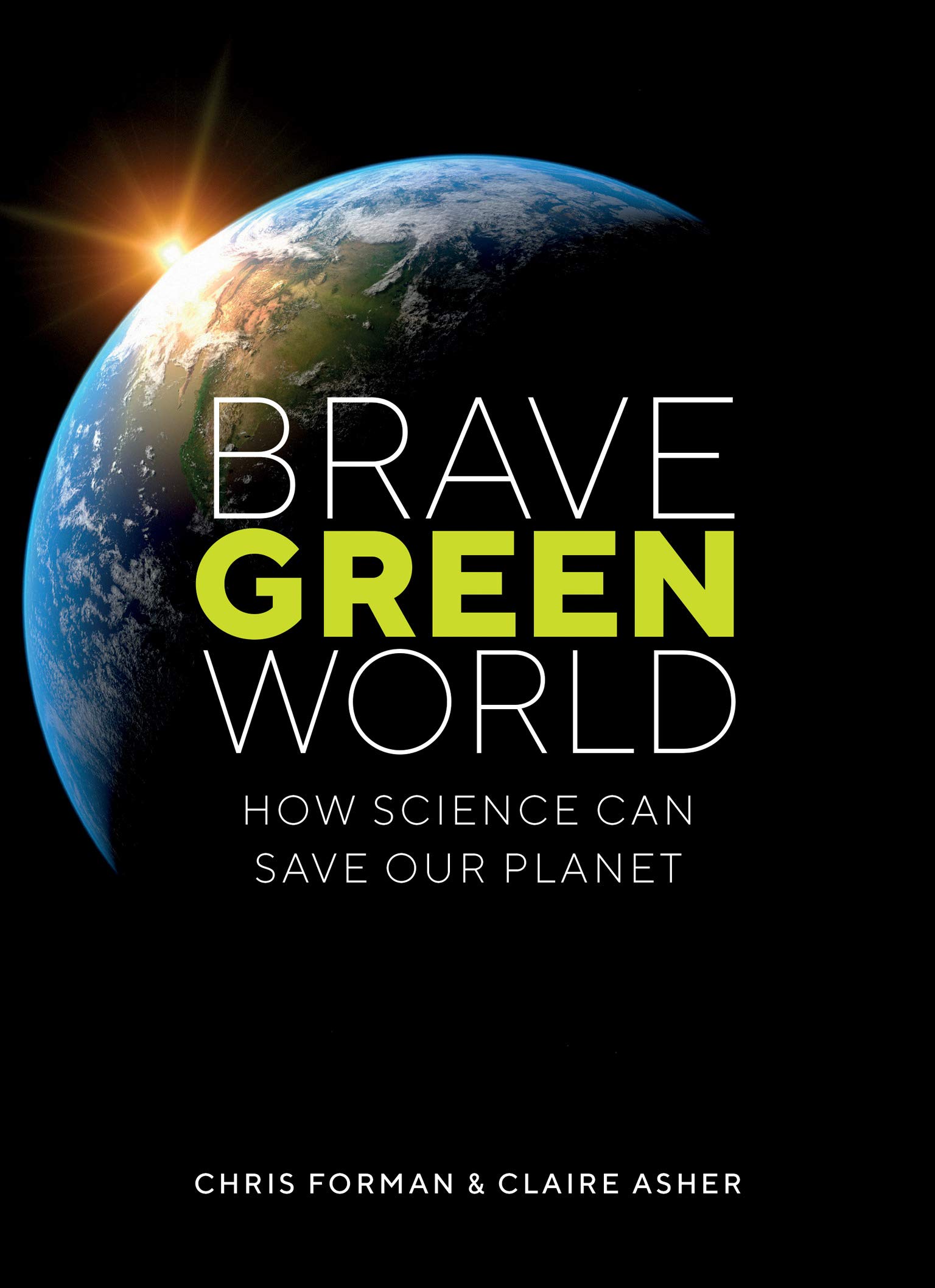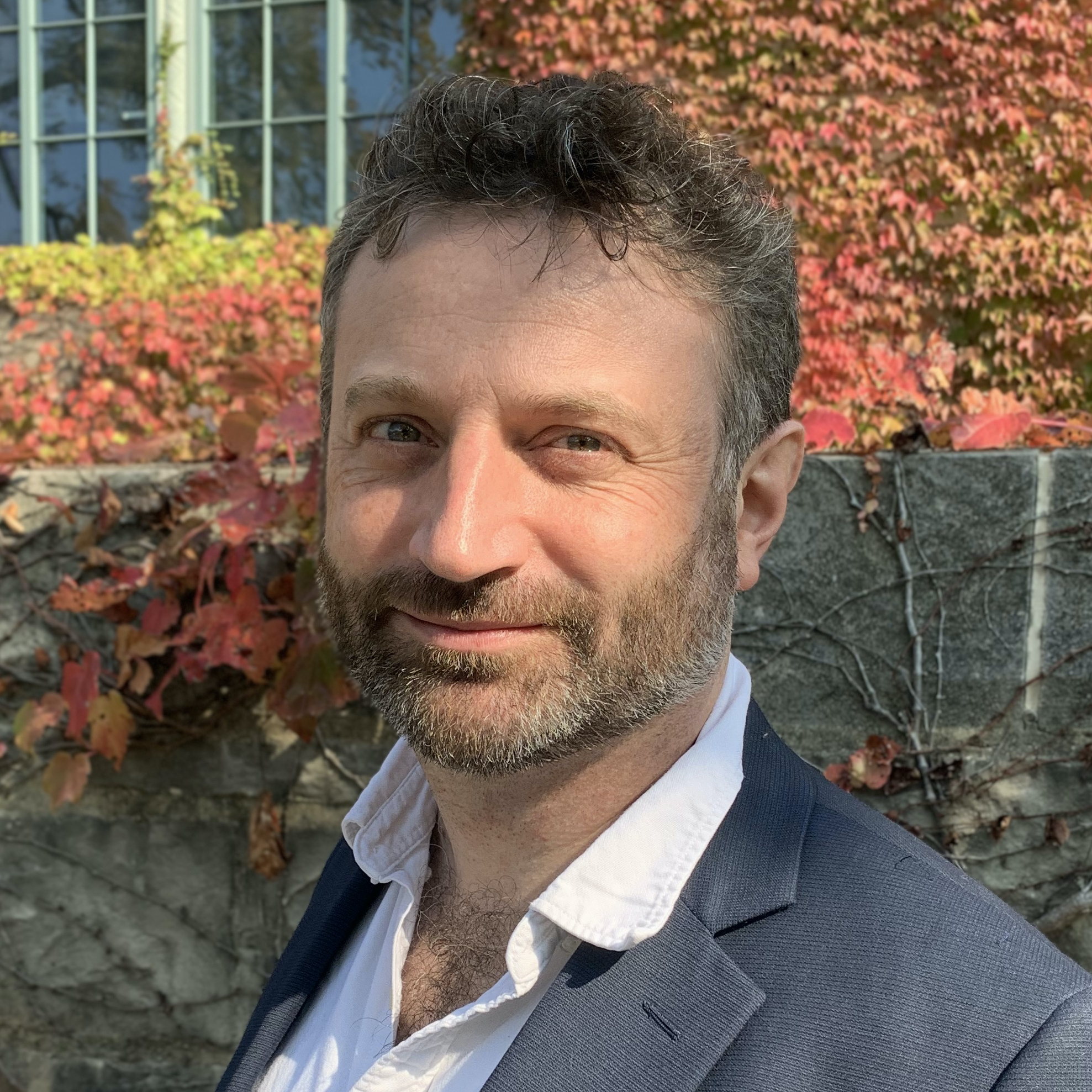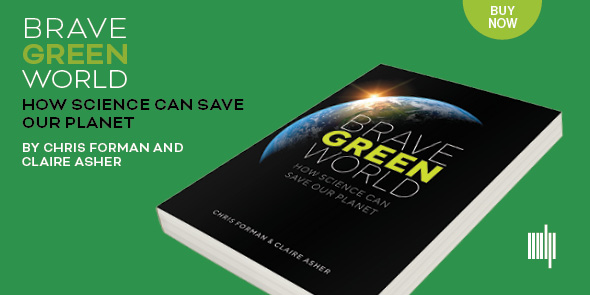



In nature, there is little chemical waste; nearly every atom is a resource to be utilized by organisms, ensuring that all the available matter remains in a perpetual cycle. By contrast, human systems of energy production and manufacturing are linear; the end product is waste. In Brave Green World, Chris Forman and Claire Asher show what our linear systems can learn from the efficient circularity of ecosystems. They offer an unblinkered yet realistic and positive vision of a future in which we can combine biology and manufacturing to solve our central problems of waste and pollution.
Forman and Asher, both scientists and accomplished science communicators, explain how 3D printing and additive manufacturing processes, combined with synthetic biology technologies, could give companies complete control over their entire manufacturing chain—including the waste. They describe AI as the magic ingredient that can create advanced automated systems that generate the molecular, nanoscale, and macroscale tools designers need to fabricate a circular economy, and they argue that emerging new forms of
computation in smart materials could be the backbone of our future infrastructure. Forman and Asher boldly address the large-scale issues of climate change, describing how the fusion of cutting-edge manufacturing and biology can offer solutions to Earth's existential crisis. Woven throughout the book is a provocative case study: how to grow an all-natural smart phone.
"Nothing is wasted in natural systems, yet humankind produces ever-increasing levels of waste. Scientists and science communicators Chris Forman and Claire Asher consider the cycles in nature and how our linear system — production leading to waste — can learn from the cyclical efficiency of ecosystems. This work focuses on science offering solutions to save the planet by embracing artificial intelligence to automate manufacturing systems as well as the use of three-dimensional printing and additive processes to gain control over the entire production process; a circular economy could emerge with positive effects on climate mitigation."
Bronwyn Wake, Nature Climate Change
"The authors draw on the full spectrum of fields within science and engineering to explore how current and future technologies could transform all aspects of production ... While at times the suggestions feel too futuristic, the book is illustrated throughout with existing examples of technologies discussed. The (immense) difficulty is in piecing them together to create an overarching structure, which the book concedes has “colossal technical challenges”. Nevertheless, it is an exciting and original contribution to the discussion around sustainability, and it certainly refreshes my appreciation for nature, which has evolved the incredibly complex, ordered and efficient systems that we wish to emulate."
Laura Hiscott, Physics World
"How future technology can clean up the environment...Using many dazzling illustrations, they deliver a capsule but definitely not dumbed-down education on the biology and thermodynamics that engineers must understand as they change the world...Humans are superb problem-solvers, and the authors make a convincing case that technology will mitigate at least some of the devastation we are inflicting on the Earth... An ingenious, if highly speculative, save-the-planet proposal that emphasizes science over politics"
Kirkus Reviews

Physics World: Turning over a new leaf: a round-up of the best new environmental-science books; Magic smartphone trees: technology for a circular economy
Nature Climate Change: On our bookshelf
Full Grown: New Book By Chris Forman and Claire Asher
Fast Company Magazine: Everything from smartphones to housing can be built without waste. Here's how
Publishers Weekly: Spring 2021 Science Books to look out for
Kirkus Reviews: An ingenious, if highly speculative, save-the-planet proposal that emphasizes science over politics.